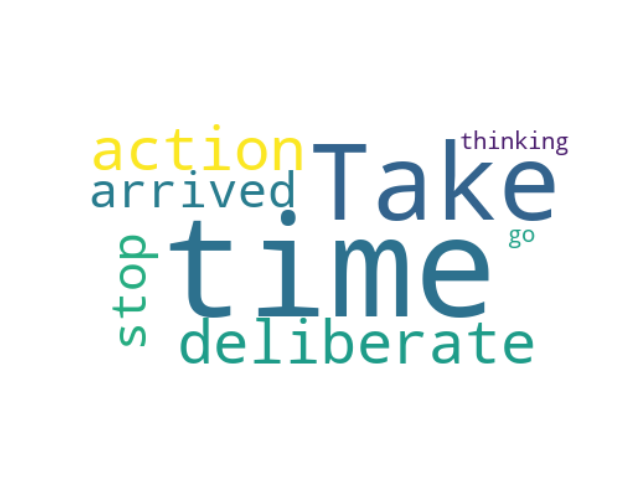Visual representation of data has always been a fascinating aspect of analytics. Among these, word clouds stand out as a captivating way to represent textual data. Today, we're diving into the world of Python to see how a simple script can transform any piece of text into a visually stunning word cloud.
What is a Word Cloud?
A word cloud is a collection of words depicted in different sizes, which represent the frequency or importance of each word. They are not only visually appealing but also provide a quick, insightful view of the key themes in a body of text.
Python and Data Visualization
Python, with its vast libraries, is a powerhouse for data visualization. In this post, we focus on using the wordcloud library, a tool that simplifies the process of creating word clouds.
The Script: Crafting Your Word Cloud
Let's break down the script:
from wordcloud import WordCloud
import matplotlib.pyplot as plt
def create_word_cloud(text):
# Generate a word cloud image
wordcloud = WordCloud(background_color="white", max_words=200, contour_width=3, contour_color='steelblue')
wordcloud.generate(text)
# Display the generated image
plt.imshow(wordcloud, interpolation='bilinear')
plt.axis("off")
plt.show()
if __name__ == "__main__":
user_input = input("Enter your favorite quote or text for the word cloud: ")
create_word_cloud(user_input)
- Generating the Word Cloud: The WordCloud function from the wordcloud library is used to create the cloud.
- Customization: You can customize the background color, number of words, and more.
- Displaying the Image: Using matplotlib, the script displays the generated word cloud.
Setting Up
To experiment with this script, you need to have Python installed. Additionally, install the wordcloud and matplotlib libraries using pip:
pip install wordcloud matplotlib
Creating Your Word Cloud
Run the script, and enter your favorite quote, poem, or any text. Watch as the script transforms your words into a beautiful cloud of words.
For example:
Enter your favorite quote or text for the word cloud:
Take time to deliberate but when the time for action has arrived stop thinking and go in.
Will generate this word cloud:
Applications
Word clouds can be used for:
- Analyzing key themes in documents or speeches
- Creating visually appealing representations of your favorite texts
- Educational purposes to help students identify key terms in lessons
Conclusion
This simple Python script opens the door to a world where data and art collide. It shows how Python's simplicity and power can be leveraged to create not just functional, but also beautiful, results.




















